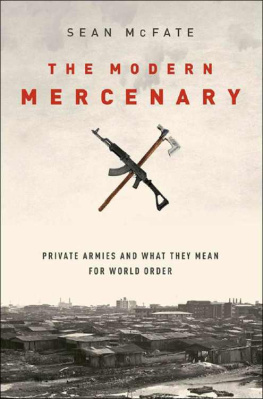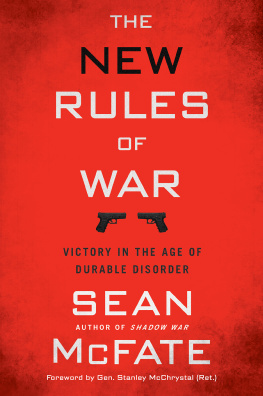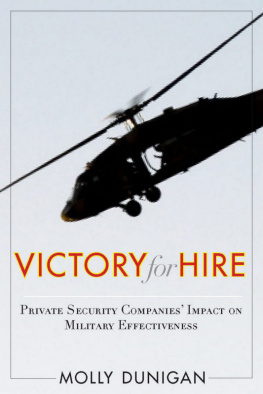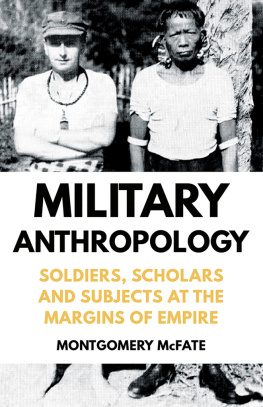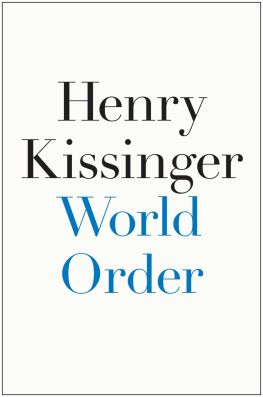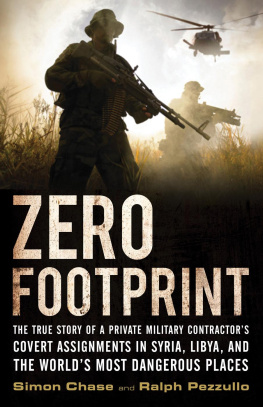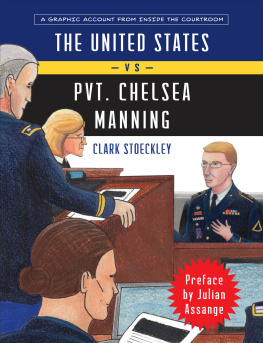The Modern Mercenary
The Modern Mercenary
Private Armies and What They Mean
for World Order
SEAN McFATE


Oxford University Press is a department of the University of Oxford.
It furthers the Universitys objective of excellence in research, scholarship, and education by publishing worldwide.
Oxford New York
Auckland Cape Town Dar es Salaam Hong Kong Karachi
Kuala Lumpur Madrid Melbourne Mexico City Nairobi
New Delhi Shanghai Taipei Toronto
With offices in
Argentina Austria Brazil Chile Czech Republic France Greece
Guatemala Hungary Italy Japan Poland Portugal Singapore
South Korea Switzerland Thailand Turkey Ukraine Vietnam
Oxford is a registered trademark of Oxford University Press in the UK and certain other countries.
Published in the United States of America by
Oxford University Press
198 Madison Avenue, New York, NY 10016
Sean McFate 2014
All rights reserved. No part of this publication may be reproduced, stored in a retrieval system, or transmitted, in any form or by any means, without the prior permission in writing of Oxford University Press, or as expressly permitted by law, by license, or under terms agreed with the appropriate reproduction rights organization. Inquiries concerning reproduction outside the scope of the above should be sent to the Rights Department, Oxford University Press, at the address above.
You must not circulate this work in any other form and you must impose this same condition on any acquirer.
Library of Congress Cataloging-in-Publication Data
McFate, Sean.The modern mercenary : private armies and what they mean
for world order / Sean McFate.
pages cm
ISBN 9780199360109 (hardback : alk. paper) 1. Private military companies. 2. Mercenary
troops. 3. Mercenary troopsUnited States. 4. United StatesMilitary policy. 5. Security,
International. I. Title.
U240.M224 2014355.354dc232014000896
1 3 5 7 9 8 6 4 2
Printed in the United States of America on acid-free paper
To the pastfarewell
Epitaph on an Army of Mercenaries
These, in the day when heaven was falling,
The hour when earths foundations fled,
Followed their mercenary calling,
And took their wages, and are dead.
Their shoulders held the sky suspended;
They stood, and earths foundations stay;
What God abandoned, these defended,
And saved the sum of things for pay.
A. E. Housman
CONTENTS
Table
Figures
In 2004, I found myself in a peculiar position. I was in Burundi, a small country in central Africa, sipping a Coke with the countrys president, the US ambassador, a woman I presumed was from the Central Intelligence Agency (CIA), and the presidents eight-year-old daughter. It was around nine p.m., and we were watching the local television news in his living room at the presidential palace, not speaking a word. There was nothing to say. The presidents life was in danger. The United States had brought me in to keep him alive. I wasnt sure how.
Ten years earlier, the genocide of the Tutsis that began in Rwanda swept south through neighboring Burundi, leaving a wake of sorrow and ash. More than eight hundred thousand people were murdered in ninety days, which is nearly a soul a minute. The original genocide remained unfinished business for some, and a group of Hutu rebels called the Forces Nationales de Libration (FNL) yearned to conclude its grim work. When I arrived at Bujumbura, the capital of Burundi, the FNL was hiding out across the border in the Wild, Wild West of Kivu, the easternmost region of the Democratic Republic of Congo, which abuts Burundi to the west.
US intelligence organizations received credible information that the FNL planned to cross the border at night, travel the twenty kilometers to the capital, and descend on the presidential palace. Their target was the president. They knew his assassination could reignite the genocide, just as the 1994 genocide was triggered by the killings of the Burundian and Rwandan presidents.
My job was to prevent this genocide from happening. I was to keep the president alive and in public view and without anyone knowing it was a US program, including staff at the US embassy. This I did. Curiously, I was not a member of the CIA or part of a covert US military unit or even a government employee. I was from the private sectora contractor to many and mercenary to someworking for a large company called DynCorp International. DynCorp provides a wide range of services for the US government, from repairing military jets to guarding the president of Afghanistan to flying counterdrug missions in Colombia to preventing a possible genocide in Africa.
This is increasingly how foreign policy is enacted today: through corporations. Superpowers such as the United States cannot go to war without contractors in places like Iraq and Afghanistan, which was not the case even a generation ago. Tasks that once would have been the sole province of the CIA or the military are routinely contracted out to firms listed on the New York Stock Exchange. The most disturbing aspect of this trend is the decision to outsource lethal force: paramilitary, armed civilians patrol the streets of Baghdad and Kabul for their employer, the United States of America. These small private armies are organized as multinational companies, the most infamous being Blackwater USA, which commoditize conflict. Since 9/11, this industry has exploded from tens of millions to tens of billions of dollars in the chum slick of war contracts.
For-profit warriors cause concern. I recall being lambasted as a mercenary and morally promiscuous by fellow graduate students at Harvard University, insinuating that my existence somehow imperiled world peace. Similarly, my paratrooper buddies from the US Armys 82nd Airborne Division, where I served as an officer, scowled and said that I had gone mercenary and was lost to the dark side. Yet the work I was doing at DynCorp was similar to what I would have done had I remained in the military, and the pay and benefits were not that great, despite popular perceptions to the contrary. Why all the vitriol?
The critics of the private military industry do have a point: linking profit motive to warfare has frightening implications in modern times. The growth of this industry has received copious attention in scholarship and popular literature alike. But despite the volumes of ink spilled on the subject, rigorous analysis remains thin, because private military companies are notoriously opaque. Moreover, their employers are reluctant to share information with outside researchers because of the politically sensitive nature of the work.
The secrecy surrounding the private military industry has shrouded it in mystery, myth, and conspiracy theory. Knee-jerk left-wing and right-wing critiques permeate the debate, politicizing and polarizing it. Much is highly sensationalized. What genuine study has occurred is narrow and limited to a few aspects of the industry: the legal status of armed civilian contractors on the battlefield; accountability issues relating to monetary fraud, waste, and abuse; and the experiences of high-profile companies such as Blackwater in Iraq and Afghanistan.
Meanwhile, broader questions remain. Why have strong countries such as the United States elected to employ private military forces after centuries of their prohibition? Does the privatization of war change warfare, and if so, does it affect strategic outcomes? What does the privatization of military force augur for the future of international relations? As a veteran of this industry, I continue to be haunted by these questions, which is why I wrote this book.
Next page
